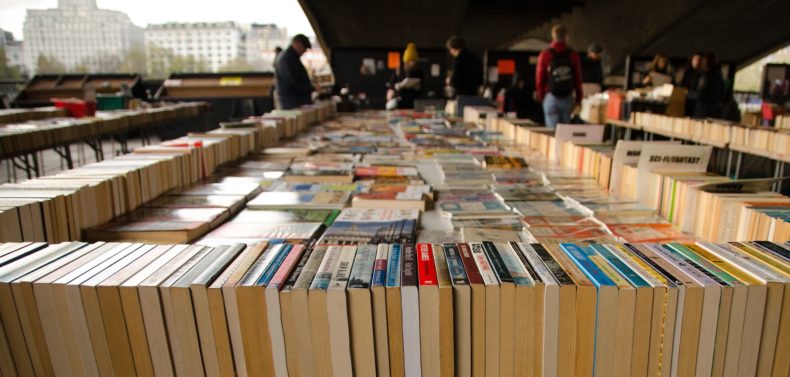Which political book has most changed or challenged your views?

Image by Rudy and Peter Skitterians from Pixabay.
I previously blogged about the book that most shaped my political views (it’s one you’ve probably never heard of). Both in the comments on that post and elsewhere other people shared the books that had most influenced them, which made for an impressively diverse and interesting set of titles to read about.
So here’s a related question: which book has most challenged your previous political views, putting them under heavy strain or even changing them?
The book most changed my views (and my life) was Pornography: Men Possessing Women by Andrea Dworkin. Dworkin was a radical feminist and in reading her book, I was able to understand clearly for the first time that my 1950s upbringing, with its emphasis on the leading role of men and its expectations of women’s (secondary) role was wholly wrong. Of course, as a Liberal, I instinctively felt that men and women should be treated equally, but Dworkin’s book brought it home to me how absolutely appalling the attitude of many men I knew to women was and the role pornography plays in demeaning and denigrating women.
I think Dworkin’s work contributed greatly to the ongoing debate about the sexualisation of women. I only wish the reality had moved on as well, because the portrayal of women in advertising and parts of the media is still pretty appalling, though perhaps not quite so awful as that portrayed in Dworkin’s book.
“The Plan” by Douglas Carswell and Dan Hannan is an excellent read, which really challenges the value of EU institutions through a passionate of exposition localism and bringing democracy to the the people. In another life they could have been Lib Dems.
Also “Atlas Shrugged” by Ayn Rand made me understand the viewpoint and morality of the right – “I swear, by my life and my love of it, that I will never live for the sake of another man, nor ask another man to live for mine.”
Doughnut Economics by Kate Raworth. This book builds an economic system for climate action and tackling political, economical, and social inequality. It is the book that, I feel, should underpin Lib Dem economic policy in the 21st century.
Rutger Bregman’s “Utopia for Realists” (and his second book “Humankind”) are manifestos of sorts, and completely cement how much better human life can be if only the political will existed to realise radical change.
A Theory of Justice by John Rawls. Every time I’m struggling to think of where I stand an issue I just think about the Veil of Ignorance and the Maximin Principle, I think Rawls should be the most important voice for modern liberalism.
Mad Men and Bad Men is also great, shows the value of a good message and approach that is modern and focussed on winning in campaigns and the ruthlessness the Tories have had to win in the past
Bury Me in My Boots – by Sally Trench was a significant influence on my teenage political thinking fifty years ago. It influenced me into campaigning on homeless and environmental issues all that time ago – and then standing for election firstly as President of my Students’ Union and then into standing and being elected as a Town and District Councillor since that time. I retain my drive to give local people control of their lives and supporting them to use the opportunities that should be available for all. Fantastic Liberal principles that still apply half a century later.
Peter Harris
Philip Yancey’s “What’s so Amazing about Grace?” Talks about how easy it is to reject and repel others by judging them and in contrast how hard it is to show them grace and draw them into your fold. I’m not good at it but better for recognising the problem. And “Yes, 50 Secrets from the Science of Persuasion” (now also available as 60 secrets) eds. I forget. I read this far to late after a life of frustration trying to persuade folks to understand why what I was asking for was worth giving me!
Thomas Piketty – Capital and Ideology – exposing the injustice and idiocy of growing inequality.
try ‘the Good Immigrant’, a series of essays that shows how life is from the non-white perspective. I learnt a lot.
‘Europe Will Not Wait’, by Anthony Nutting, 1960. I borrowed it from my local library in 1964, a year after doing my A level History, which had been on continental Europe and England in the Middle Ages (not forgetting the Crusades). De Gaulle had not long said ‘Non’, and this book persuaded me of the need for us to join the ‘Common Market’ just as soon as we could. I found a second-hand copy during the 2016 referendum ‘debate’, and was slightly disappointed to read that it argued only on trade grounds – but those alone do seems sufficient at this present time!